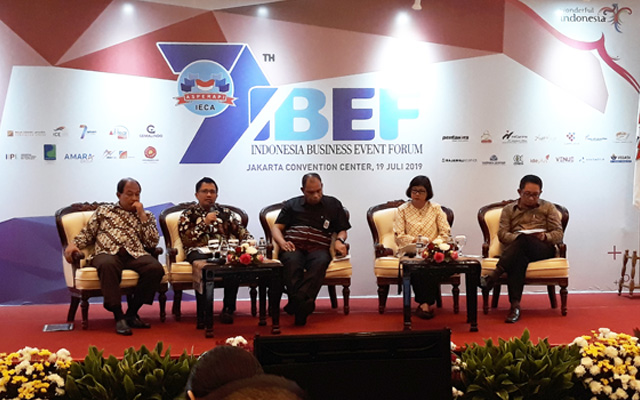Indonesia’s National Development Planning Agency (BAPPENAS) will, for the first time, play an active role in developing the country’s business events sector into one of the key economic contributors in the next five years.
Recognising that this responsibility is not solely of the Ministry of Tourism, BAPPENAS will lead efforts by other government agencies such as Trade, Industry and Investment as well as other stakeholders.

According to Leonardo Teguh Sambodo, director of industry for tourism and creative economy at BAPPENAS, a five-year development plans is being drawn out.
For this to happen, the government has asked local business events players to contribute valid data.
Alexander Reyaan, director of Natural and Man-made Tourism Development, Ministry of Tourism, said: “What we need is data on the size of the M, I, C and E components and their contributions to the national economy, so that we know where the development needs to focus on. We need the total number and spend of travellers, as well as breakdown of types and details of visitors who come for business events.”
Hosea Andreas Runkat, chairman of Indonesia Exhibition Companies Association, said events such as his organisation’s Indonesia Business Events Forum can help to collect such critical information from participating members.
Teguh noted that based on the 2018 Global Economic Significance of Business Events, Events Industry Council, Oxford Economics, Indonesia’s business events have a minute direct impact on spending and GDP – under one per cent. Business events’ impact on jobs was also merely one per cent.
Teguh said: “The average spend (by events) was US$296, lower than Singapore and Thailand, although Indonesia welcomes a higher number of participants. This is because the majority of business events here is still domestic ones. We need to push more for the international events.”
The data differed from the estimate offered by the Ministry of Tourism, which suggested that per delegate spend was US$1,900.
To improve Indonesia’s business events industry performance, Teguh said the sector will be part of the national branding, alongside other trade and industrial sectors.
Emphasising the important contributions of business events, he said: “Hosting the IMF-World Bank Annual Meeting in Bali last year not only brought us high direct impact from visitors’ spend, but also development of facilities and infrastructure (in the destination). In other words, business events improve the city, its access and services.”
He added: “With Indonesia hosting MotoGP (2021-2023), the government will go all out to develop infrastructure and facilities. This is something the business events sector can take advantage of later on.”





















